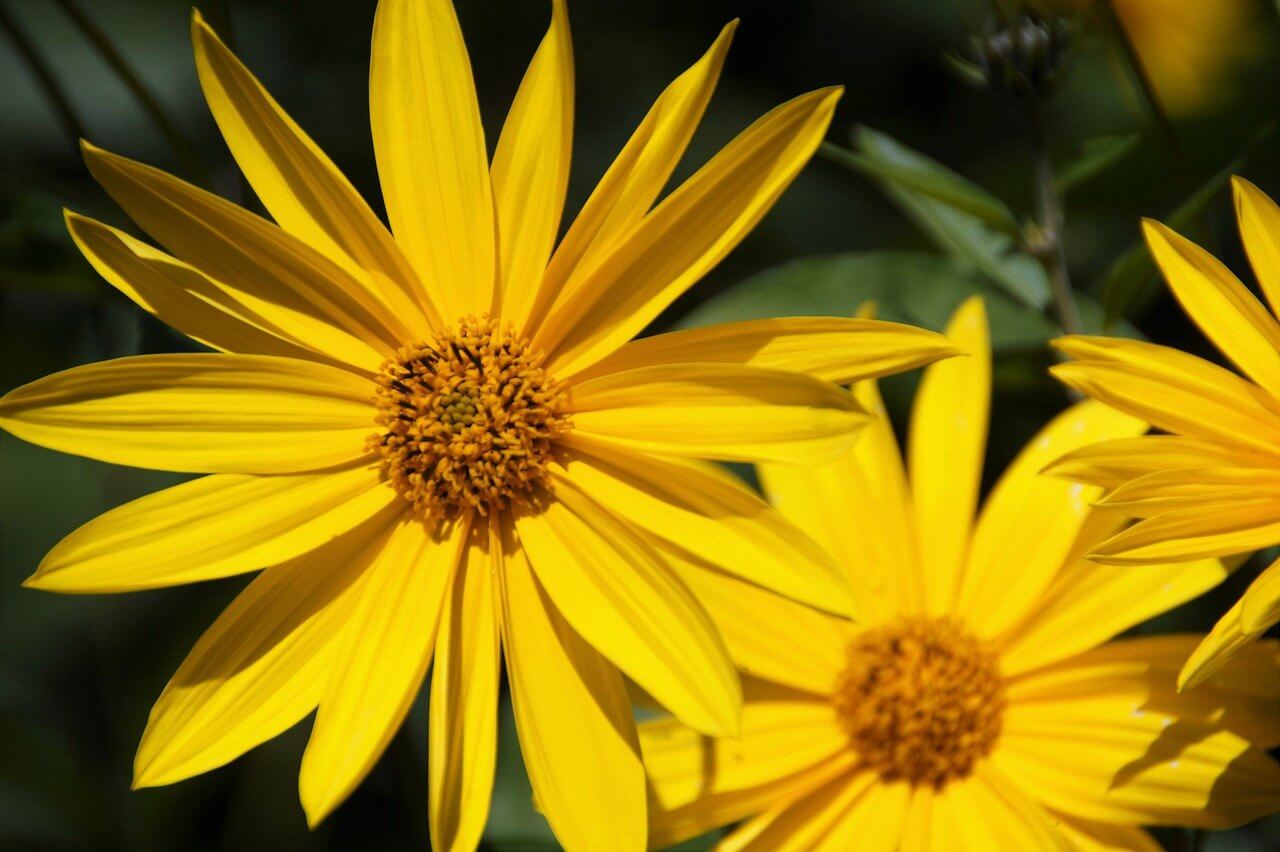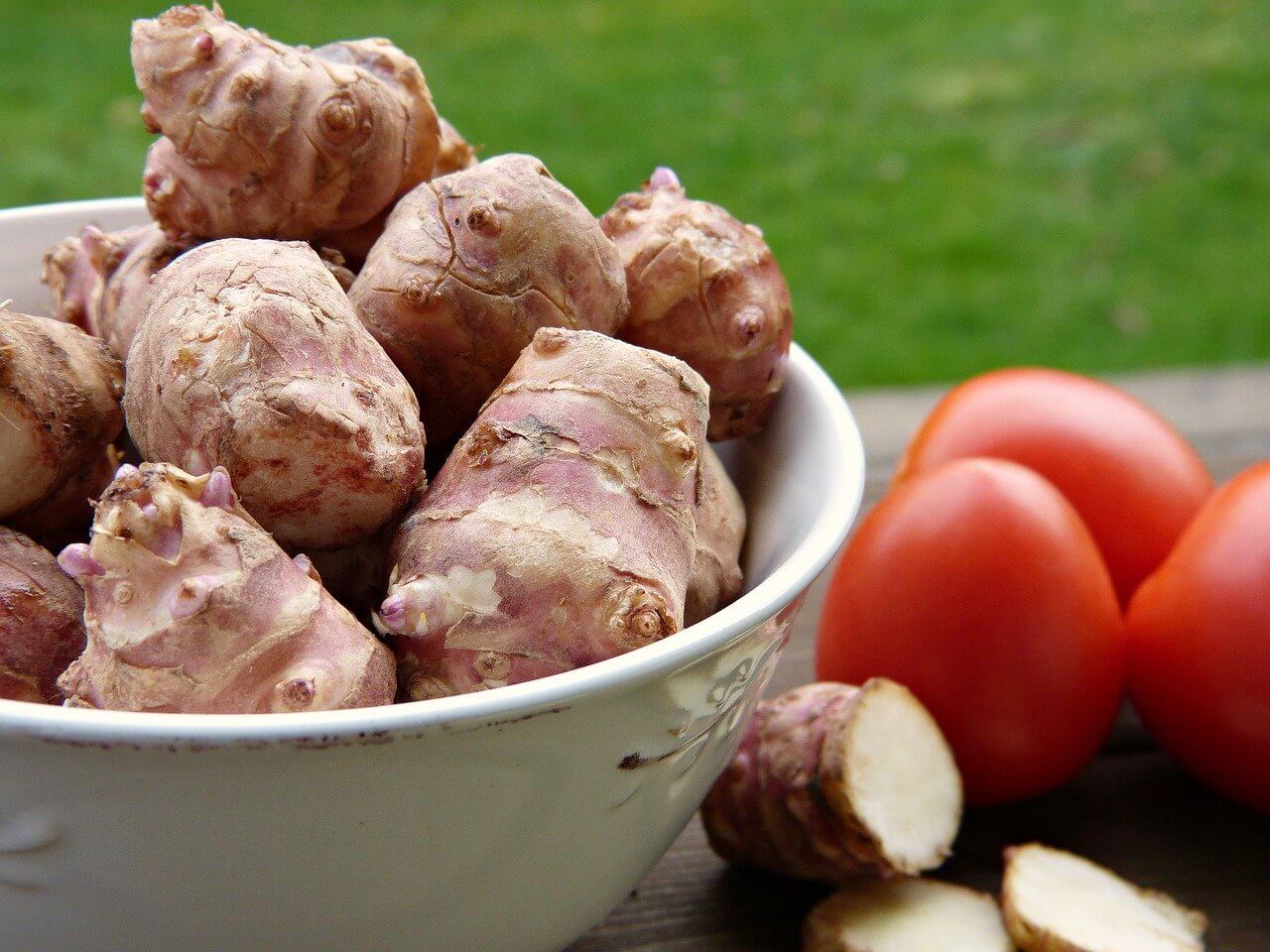So, you planted a few Jerusalem artichokes in your garden or allotment. Great! They grew and grew, and you were very proud. Good on you! They turned into a garden of Triffids, producing more than you could ever imagine yourself using. Congratulations! Welcome to the Jerusalem artichoke growing club.
This clever plant produces really well; to the point that you may be unsure what to do with its produce. Never fear! We are here to help. If you’re looking for how to store Jerusalem Artichokes, we have a few tricks up our sleeves to help you make the most of this bounty.
What is a Jerusalem Artichoke?

Also known as Sunchoke, Earth Apple and Sunroot, this root vegetable actually has no connection to Jerusalem, and very little to an artichoke either!
It is actually a species of Sunflower, and it is native to central North America. First cultivated by Native Americans, the plant found its way to Europe when the Americas were colonised, and in Europe as well as its native lands it became very popular as food.
Jerusalem artichokes are high in fibre and have a level of protein too. They were once lauded as a folk remedy for Diabetes, as they are rich in Inulin and so do not cause a glycaemic spike, as potatoes do. They are also high in Iron and Potassium, and contain Thiamine, Phosphorous and Copper too.
These versatile vegetables can be cooked in a huge variety of different ways, from soups and stews, to being grated raw into a salad. They are easy to grow and produce a lot of tubers, so they are a great addition to any veg patch.
How to store Jerusalem artichoke
Like potatoes, Jerusalem artichokes can be stored for a while, and still retain their shape and taste. These little tubers do not store quite as well as spuds, however, and care must be taken to ensure that they stay fresh.
- Remove any excess soil and flaky skin before you store your tubers.
- Keep them cool – around 0 degrees C – in an area that has between 85 and 95% humidity.
- Place them in a container of damp sand, or a plastic bag, in a special root cellar or a cool basement.
- You can store them in a refrigerator, in a perforated plastic bag, for around 10 days.
- Make sure you place your tubers in an environment that is not too hot, as this may cause mould to start, and not too cold, as this can make the tubers shrink and shrivel.
- Jerusalem artichokes will freeze well, as long as you process them first. Either blanch them and then store them in sealed bags until needed, or cook them into a dish and freeze the dish itself.
- Unlike many vegetables, Jerusalem artichokes store well under the ground. Simply leave the tubers in the soil until you need them – unless there is a heavy ground frost, in which case you should lift all the remaining tubers and store them as above.
Best ways to cook Jerusalem artichokes

Artichokes respond very well to being roasted; this type of cooking brings out their sweet flavour, and they have a lovely creamy texture too. You can add other flavours to your roasting tray; garlic is a good choice, and you can also add herbs for flavour.
Artichoke soup is a firm favourite – the artichokes have a lovely texture when cooked, and make a fantastically creamy soup with a delicate flavour. You can peel them; you can add other flavours to your soup, such as garlic an onion – or you can enjoy the artichoke on its own.
You can eat Jerusalem artichokes raw – simply slice them thinly, or grate them and stir them into a salad. Some people like to munch on a raw artichoke, while others are concerned about the digestive issues this may cause – the carbohydrate in the skin, if not broken down by cooking, can cause wind.
This video shows you a good selection of different ways to cook Jerusalem artichokes:
Final words
Jerusalem artichokes are a forgiving vegetable, which grow just about anywhere, can be cooked into just about anything, and can be stored (for a while) just about anywhere. As long as you store them carefully, you can enjoy these vegetables for a good few months to come.






To store them on my allotment, I use an old water butt (which had sprung a leak), cut in half, and layer the tubers in between layers of compost; with the water butt lid placed back on top. They make a delicious snack, thinly sliced, mixed with a little sesame oil, and cooked in an air fryer until crisp.
What happens if you harvest Jerusalem artichoke, wash and clean them and immediately put them in the freezer? Are they edible after missing the step to blanch them?